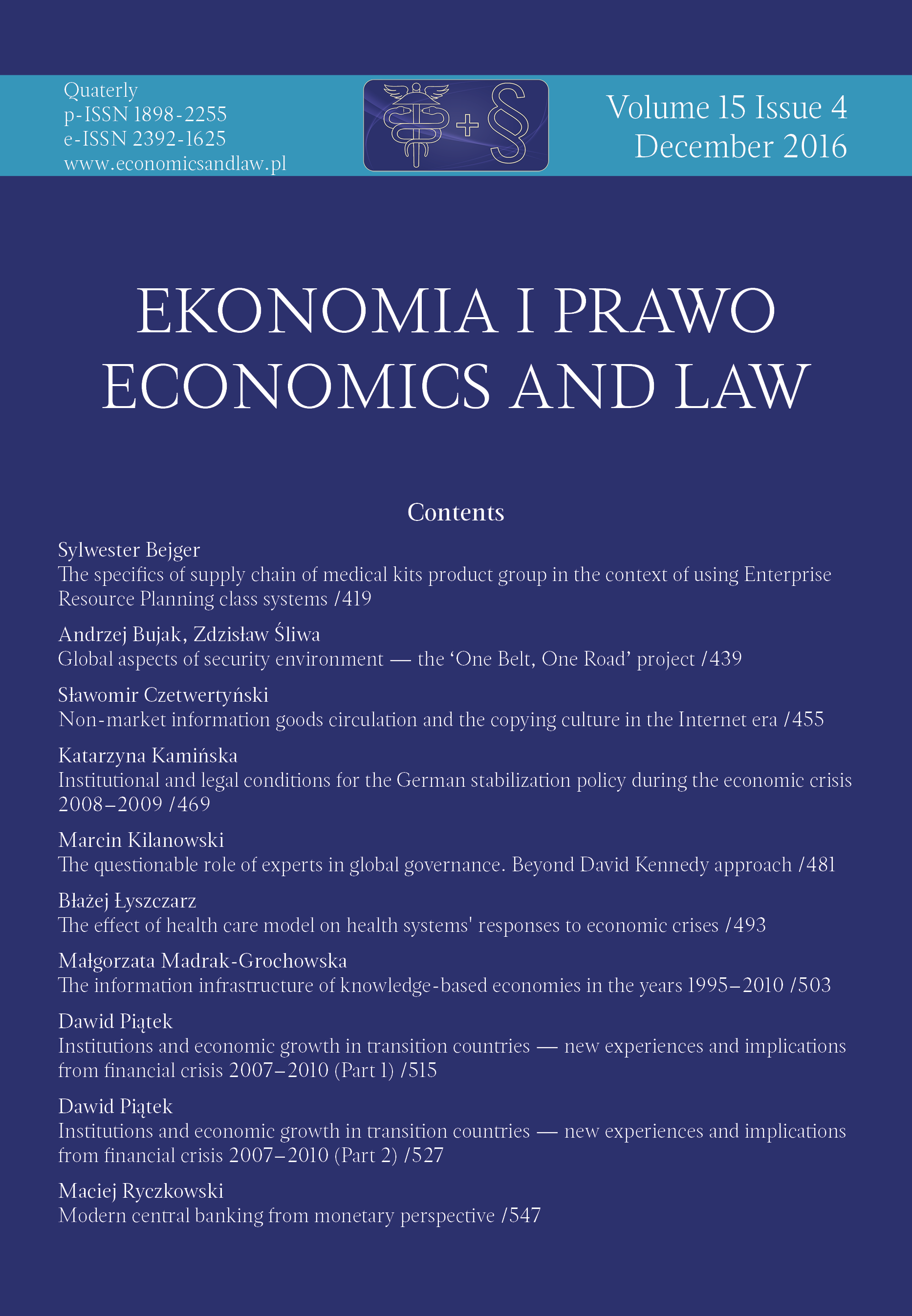Institutional and legal conditions for the German stabilization policy during the economic crisis 2008–2009
Institutional and legal conditions for the German stabilization policy during the economic crisis 2008–2009
Author(s): Katarzyna KamińskaSubject(s): Economy, National Economy
Published by: Wydawnictwo Naukowe Uniwersytetu Mikołaja Kopernika
Keywords: stabilization policy; keynesianism; Act to Promote Economic Stability and Growth
Summary/Abstract: Motivation: The economic crisis of 2008–2009 and its consequences have raised a debate among economists concerning the effectiveness of methods stabilizing economy arising from the recommendations of economic theories forming the mainstream economy.Results: The necessity to take anti-crisis measures in the countries affected by it resumed the interest in the recommendations proposed within this realm by John Maynard Keynes. Keynesian solutions have been globally adopted as a basis for anti-crisis stabilization policy. In economic policy it has been manifested primarily as the increased government intervention in economy via the increase of costs and enlarged budget deficits. One of the countries that have applied such a solution was the Federal Republic of Germany.Aim: The aim of this article is presenting the institutional and legal means of German stabilization policy as well as attempting to evaluate their effectiveness in restoring macroeconomic balance in Germany. In this regard, Keynesian Act to Promote Economic Stability and Growth, passed in 1967, which enabled using the appropriate remedial measures was addressed in detail.
Journal: Ekonomia i Prawo. Economics and Law
- Issue Year: 15/2016
- Issue No: 4
- Page Range: 469-480
- Page Count: 12
- Language: English

